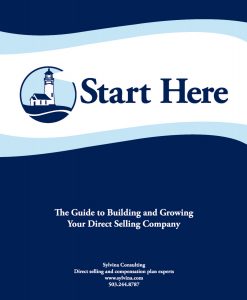 Pyramid schemes are clearly illegal, but what exactly is a pyramid and what is not?
Pyramid schemes are clearly illegal, but what exactly is a pyramid and what is not?
In the United States, the Federal Trade Commission is one of the governmental bodies that have the power to shut down pyramids. According to the FTC, one sign of a pyramid scheme is if distributors sell more products to other distributors than they do to the public. Another sign of a pyramid scheme is if the money you make depends more on recruiting — getting new distributors to pay for the right to participate in the plan — than on sales to the public.
In Canada, the Competition Bureau has defined a pyramid scheme as a form of MLM plan focused primarily on generating earnings through recruitment. These schemes may offer products. However, the products may have very little value or the plan may offer limited incentives for their sale. Income in the scheme is derived primarily from the money prospective participants pay to join the scheme and not from the sale of a product.
Other countries have similar definitions for schemes that violate respective laws.
So, how do you protect your company from being classified as a pyramid scheme?
Protect Yourself
One way to protect yourself is to generate at least 51% of your sales to non-participants in your income opportunity. To do this, you will need to establish and promote sales to retail customers. Some companies encourage retailing through the use of a preferred customer program. Preferred customers purchase products either at a discounted price from retail, or perhaps at the distributor price.
Another way is to pay multilevel compensation upon the sales of products or services and not specifically on recruiting new independent representatives.
If no one buys your product or service unless they are participating in your income opportunity, you’re in the eye of the pyramid. For a long life, you need to fix this!
For help navigating the legal landscape, call Sylvina Consulting. If we can’t answer your questions, we’ll direct you to a qualified MLM Attorney who can.

 Jay Leisner, the President of Sylvina Consulting, is a top compensation plan and direct selling expert, a trusted adviser to new and established network marketing and party plan companies. For more than 30 years, Jay has enjoyed assessing and improving network marketing, party plan and referral marketing companies across the globe.
Jay Leisner, the President of Sylvina Consulting, is a top compensation plan and direct selling expert, a trusted adviser to new and established network marketing and party plan companies. For more than 30 years, Jay has enjoyed assessing and improving network marketing, party plan and referral marketing companies across the globe.
Leave a Reply